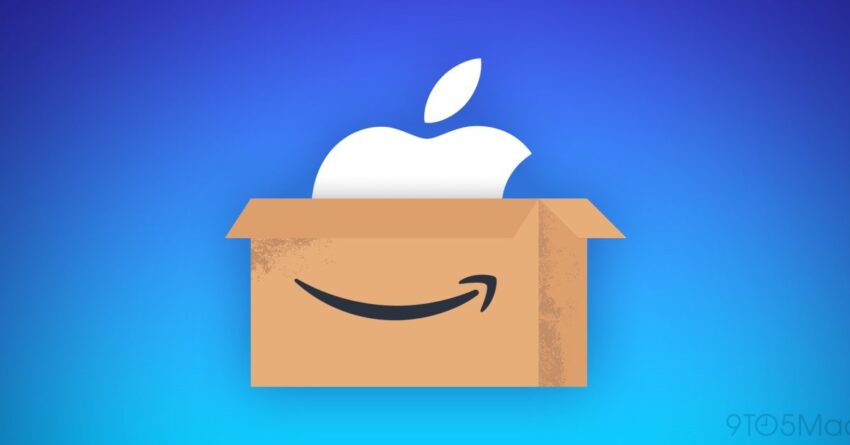
apple and amazon cleared in iphone and A Seattle federal court has agreed to dismiss a lawsuit that accused Apple and Amazon of unlawfully handling iPhone and iPad prices.
apple and amazon cleared in iphone and
Background of the Lawsuit
The lawsuit was initiated in 2021, alleging that Apple and Amazon engaged in anti-competitive practices regarding the pricing of iPhones and iPads. The plaintiffs claimed that the two tech giants conspired to fix prices, which allegedly led to inflated costs for consumers. This legal action was part of a broader scrutiny of big tech companies and their market practices, particularly in the wake of increasing concerns about monopolistic behavior in the technology sector.
The plaintiffs argued that the partnership between Apple and Amazon created an environment where competition was stifled. They claimed that this collaboration allowed Apple to control the pricing of its products on Amazon’s platform, effectively eliminating price competition from other retailers. The lawsuit sought damages for consumers who allegedly overpaid for these devices due to the alleged price-fixing scheme.
The Court’s Decision
On September 29, 2025, U.S. District Judge John C. Coughenour ruled in favor of Apple and Amazon, stating that the plaintiffs failed to provide sufficient evidence to support their claims. The court found that the relationship between Apple and Amazon did not constitute a violation of antitrust laws. Judge Coughenour emphasized that the plaintiffs did not demonstrate that the pricing practices harmed competition or consumers in a meaningful way.
The ruling was a significant win for both companies, which have faced increased scrutiny over their market practices in recent years. The court’s decision underscored the challenges plaintiffs face when attempting to prove antitrust violations, particularly in cases involving complex relationships between large corporations.
Legal Implications
The dismissal of this lawsuit has broader implications for future antitrust cases against technology companies. Legal experts suggest that the ruling may set a precedent for how courts evaluate claims of price-fixing and anti-competitive behavior in the tech industry. The decision highlights the necessity for plaintiffs to provide concrete evidence of harm to competition or consumers, rather than relying on assumptions or circumstantial evidence.
Furthermore, this case illustrates the ongoing tension between regulatory bodies and large technology firms. As governments worldwide consider stricter regulations to curb monopolistic practices, the outcomes of such lawsuits will likely influence future legislative efforts. The ruling may embolden other tech companies to continue their business practices without fear of legal repercussions, at least until more substantial evidence of wrongdoing is presented.
Reactions from Stakeholders
The dismissal of the lawsuit has elicited varied reactions from stakeholders across the tech industry and consumer advocacy groups. Apple and Amazon welcomed the court’s decision, viewing it as a validation of their business practices and a reaffirmation of their commitment to fair competition.
Apple’s spokesperson stated, “We are pleased with the court’s ruling, which confirms that our pricing strategies are lawful and competitive. We remain committed to providing our customers with high-quality products at fair prices.” Similarly, Amazon expressed satisfaction with the outcome, emphasizing its role as a marketplace that fosters competition among sellers.
Consumer Advocacy Groups
In contrast, consumer advocacy groups expressed disappointment with the ruling. They argued that the court’s decision may embolden large corporations to engage in practices that could harm consumers in the long run. These groups contend that the relationship between Apple and Amazon could still lead to anti-competitive behavior, even if it does not meet the legal threshold for price-fixing.
A representative from a prominent consumer advocacy organization stated, “While we respect the court’s decision, we remain concerned about the implications of this ruling. It is essential to scrutinize the relationships between major corporations to ensure that consumers are not unfairly impacted.” This sentiment reflects a broader concern among consumer advocates regarding the power dynamics in the tech industry and the potential for abuse.
Context of Antitrust Scrutiny in the Tech Industry
The dismissal of the lawsuit against Apple and Amazon occurs within a larger context of increasing antitrust scrutiny directed at major technology companies. In recent years, regulators in the United States and abroad have ramped up investigations into the practices of companies like Google, Facebook, and Amazon. The focus has been on whether these companies engage in monopolistic behavior that stifles competition and harms consumers.
In the U.S., lawmakers have introduced various bills aimed at increasing oversight of big tech companies. These legislative efforts seek to address concerns about data privacy, market dominance, and consumer protection. The dismissal of the Apple and Amazon lawsuit may influence how lawmakers approach future regulations, particularly regarding pricing practices and market competition.
Global Perspective
Globally, the European Union has taken a more aggressive stance against big tech companies, implementing regulations designed to promote competition and protect consumers. The EU’s Digital Markets Act, for instance, aims to prevent anti-competitive practices by large online platforms. As the U.S. legal landscape continues to evolve, the outcomes of cases like the one involving Apple and Amazon may inform international regulatory approaches.
Future Outlook for Apple and Amazon
With the lawsuit dismissed, both Apple and Amazon can continue their business operations without the cloud of legal uncertainty hanging over them. For Apple, this ruling allows the company to maintain its pricing strategies, which are integral to its brand positioning and profit margins. The company has long been known for its premium pricing model, which it argues reflects the quality and innovation of its products.
Amazon, on the other hand, can continue to leverage its platform to sell a wide range of products, including those from Apple. The relationship between the two companies has been mutually beneficial, as Amazon provides a significant sales channel for Apple’s devices. The court’s ruling reinforces this partnership, allowing both companies to focus on growth and innovation without the distraction of ongoing litigation.
Potential for Future Litigation
While this lawsuit has been dismissed, it is unlikely to be the last legal challenge faced by either company. As consumer awareness of corporate practices increases, more individuals and organizations may seek legal recourse against perceived anti-competitive behavior. Future lawsuits may arise not only from consumers but also from smaller competitors who feel threatened by the market dominance of giants like Apple and Amazon.
Legal experts suggest that any future litigation will need to be more robust in its evidence and arguments, especially in light of the court’s ruling in this case. Plaintiffs will likely need to demonstrate clear harm to competition or consumers to succeed in similar lawsuits moving forward.
Conclusion
The dismissal of the price-fixing lawsuit against Apple and Amazon marks a significant moment in the ongoing discourse surrounding antitrust issues in the tech industry. As the legal landscape continues to evolve, the implications of this ruling will resonate not only within the tech sector but also among consumers and lawmakers alike. The ruling serves as a reminder of the complexities involved in proving anti-competitive behavior and the challenges that plaintiffs face in navigating the legal system.
As both companies move forward, they will likely remain under the watchful eye of regulators and consumer advocates. The outcome of this case may influence future legal actions and regulatory measures aimed at ensuring fair competition in an increasingly digital marketplace.
Source: Original report
Was this helpful?
Last Modified: October 1, 2025 at 1:42 am
0 views















